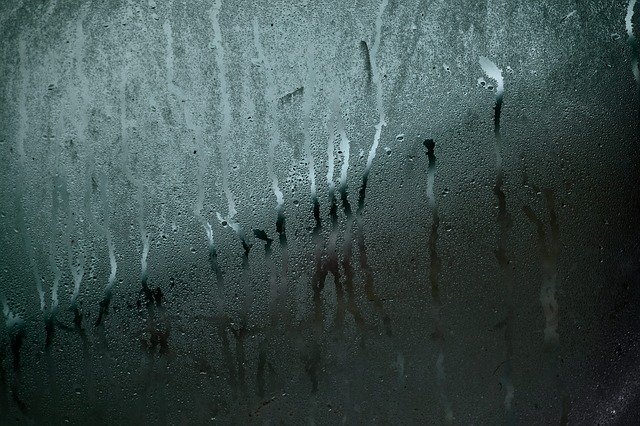We’re all looking for ways to reduce our energy consumption, especially in light of the current energy market crisis. Wholesale gas prices have exploded in the latter half of 2021, with lasting repercussions for the energy bills of UK households. As such, many of us are trying to find ways to reduce our heating bills specifically. We’re hanging up the heavy drapes, fitting draught excluders to our letterboxes and popping into the loft to check on our insulation.
Some of us may even be taking a look at our double glazed windows and thinking about whether they should be replaced. After all, we know that not all double glazed windows are created equal. Plus newer, more energy-efficient windows could make it that much easier to stay warm this winter without having to crank up the heating.
That said, no household wants to endure unnecessary disruption or expense by replacing their windows if there’s unlikely to be a tangible difference in the insulation they provide. So, is it really worth replacing your old double glazing?
Signs That Your Double Glazing Needs To Be Replaced
 Needless to say, nobody wants to replace double glazed windows that are doing their job perfectly well. By rule of thumb, double glazed windows last for anywhere between 20 and 35 years. There are a lot of variables at play from the location of the windows to weather conditions and, of course, the quality of the installation.
Needless to say, nobody wants to replace double glazed windows that are doing their job perfectly well. By rule of thumb, double glazed windows last for anywhere between 20 and 35 years. There are a lot of variables at play from the location of the windows to weather conditions and, of course, the quality of the installation.
However, this doesn’t mean that they’ll continue to do their job at peak efficiency for this long. What’s more, it’s not always easy to tell when your double glazed windows were installed.
With that in mind, let’s take a look at some of the signs to look out for. Any of these may indicate that your double glazed windows aren’t offering you the thermal efficiency they should:
Draughts
Do you get a little shudder when you walk past your windows? This may indicate that the seal is worn and cold air is leaking into your home. While there are interim fixes that can mitigate this in the short term, replacing your windows may be the best solution in the long run.
Condensation
The sight of tiny beads of moisture within your window glass doesn’t just spoil your view, it’s also a telltale sign that your windows may need to be replaced. Condensation means that the seal for the gas cavity between window panes has failed. Therefore the gas is no longer preventing heat from leaking out through your windows.
Chips
A chip or crack in your window’s glass is a surefire sign that it needs to be replaced. Not only does it compromise your window’s thermal efficiency, but it’s also a potential security risk.
Water ingress
Little puddles of water on your windowsill can be a distressing sight, especially during the chilly winter nights. There are two common causes for this and naturally, neither of them are ideal. Typically water ingress means that either the weather seal has failed or that there’s an issue with your window’s drainage. In either case, it’s probably time to consider replacing the window.
Heating Bills
As well as keeping an eye on the condition of your windows themselves, it’s also a good idea to keep an eye on your heating bills. Energy crisis notwithstanding, a surge in your heating costs may also indicate an issue with your double glazing.
Replacing Your Double Glazed Windows: Making An Informed Decision
 When deciding whether or not to replace your double glazed windows, it’s important to keep your expectations realistic. Replacing your double glazing could bring a host of benefits, but it also has its caveats. With that in mind, let’s take a look at some of these so that you can make an informed decision:
When deciding whether or not to replace your double glazed windows, it’s important to keep your expectations realistic. Replacing your double glazing could bring a host of benefits, but it also has its caveats. With that in mind, let’s take a look at some of these so that you can make an informed decision:
The Benefits
Replacing old double glazing can bring a range of great benefits to your home. These include:
- Transparency
Pun intended! Double glazing has come a long way in recent years. The British Fenestration Rating Council has a rating system that goes from E all the way up to A++. This makes it easy to understand the thermal efficiency of your glazing.
- Savings
If your current double glazing is on its last legs, replacing your double glazing could seriously increase the thermal efficiency of your home. It seals in free heat energy from the sun while ensuring that the heat you pay for doesn’t leak out of your home.
- Aesthetics
When your windows were first installed, UPVC may have been your only option. Now, however, there is a wide range of timber and aluminium frames to showcase your windows and enhance your home’s aesthetic.
- Versatility
While many choose to replace the whole window unit, it is possible to simply replace the glass. This can bring down the cost of replacing your windows if you’re on a budget.
- Soundproofing
As well as improving thermal insulation, new double glazing also improves sound insulation. So, you can enjoy greater privacy and a welcome reprieve from noisy neighbour
Things to Consider
Before you make a decision about replacing your double glazing, you also need to consider the following:
- Cost
Replacement windows can cost anywhere between £150 and £600+ per window. However, replacing the glass rather than the whole unit can bring down costs to around £55-£150 per window.
- Time
While you can enjoy years of energy savings, it will take time for these to become noticeable.
- Mess
When your new double glazing is installed, the area around the window is essentially a building site. You can expect some mess including old sealant, flakes of paint, and plaster dust. However, your glazier will take care to mitigate the impact of mess on your home and lifestyle and clean up after themselves as best they can.
- Disruption
If you’re one of many still working from home, you can expect some noise and disruption while your new double glazing is installed. This can take anywhere between 1-3 hours per window.
So, Is It Worth It?
At KLG Glass, we want to help our customers make an informed decision when it comes to replacing their windows. We don’t want to pressure anyone into buying double glazing they don’t need.
Hopefully, this post will help you to decide whether or not it’s worth replacing your old double glazing. It’s worth getting to know the signs that your windows need to be replaced. You should also familiarise yourself with the benefits and caveats of replacing your old double glazing. However, if you’re still unsure, a member of our team will be more than happy to discuss your needs with you.

